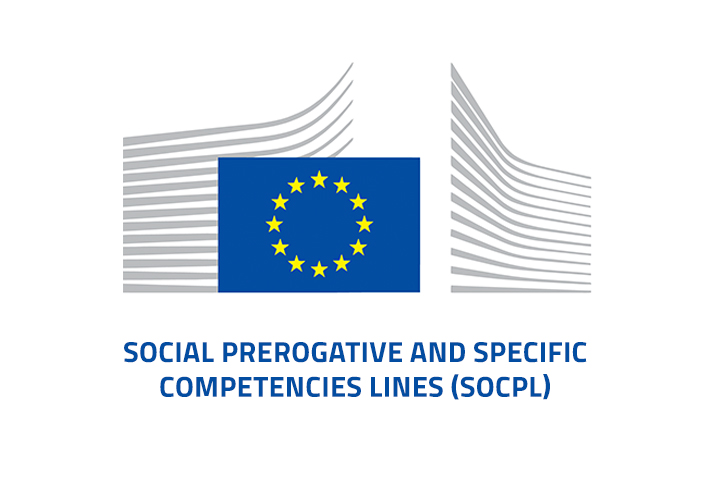Filter Search for grants
Program navigation
Content of program
| short description | Prerogatives are tasks resulting from specific powers directly conferred by the Treaty on the Functioning of the European Union (TFEU) to the European Commission. The prerogatives budget lines managed by the Directorate General for Employment, Social Affairs and Inclusion deal with social dialogue, labour mobility as well as analysis of the social situation, demographics and the family. |
| program objectives | The SOCPL implements these prerogatives through specific calls for tenders and proposals in the following areas:
|
| Expected results | The financial support through the prerogatives for promoting European social dialogue at cross-industry, sector and company level (overall some EUR 43.9 million in 2020) is based on Article 154-155 TFEU. The Commission supports actions undertaken by European social partners to promote social dialogue and to agree on joint actions, including through capacity building activities (excluding national capacity-building activities which can be funded under ESF/ESF+) and more analytical activities that contribute to developing expertise in the field of industrial relations. It also supports information and training measures for workers’ organisations and transnational exchange of information and good practices in matters relevant for social dialogue at company level following calls for proposals. In support of free movement of workers and coordination of social security schemes (Articles 45 and 48 TFEU) overall some EUR 9.3 million in 2020 is available. Here the prerogatives support complements activities of the European Labour Authority. It further supports the analysis of the current situation, looking for legal and technical improvements and aiming at ensuring an effective freedom of movement of workers and coordination of social security schemes, notably through and the Electronic Exchange of Social Security Information (EESSI). In addition, around EUR 3.5 million is to support analysis and studies to promote better policy responses in the Member States to demographic and social challenges. It provides for analytical support on socio-economic developments in the EU, on social and labour market outcomes and development of indicators in the areas of income distribution, poverty, social mobility, or social exclusion. Economic and social sustainability, social and distributional aspects of other policies (climate change, energy, trade, etc.), inclusive growth, future of work, and inequalities are key topics. read more |
Eligibility criteria
| Regions / countries for funding | EU Member States Moldova (Moldova), Albania (Shqipëria), Bosnia and Herzegovina (Bosna i Hercegovina / Босна и Херцеговина), Georgia (საქართველო), Montenegro (Црна Гора), North Macedonia (Северна Македонија), Serbia (Srbija/Сpбија), Türkiye, Ukraine (Україна) |
| eligible entities Partners |
Other, Non-Profit Organisation (NPO) / Non-Governmental Organisation (NGO), Small and medium-sized enterprise (SME), Private institution, incl. private company (private for profit), International organization, Public Body (national, regional and local; incl. EGTCs), Research Institution incl. University, Education and training institution |
| Mandatory partnership | No |
| Project Partnership | In order to be eligible, the applicants (beneficiaries, affiliated entities and associated partners) must:
|
Additional information
| Topics | Competitiveness of Enterprises, Employment/Labour Market, SME & entrepreneurship, Demographic Change, European Citizenship, Migration, Health, Social Services, Sports |
| Relevance for EU Macro-Region | EUSAIR - EU Strategy for the Adriatic and Ionian Region, EUSALP - EU Strategy for the Alpine Space, EUSBSR - EU Strategy for the Baltic Sea Region, EUSDR - EU Strategy for the Danube Region |
| UN Sustainable Development Goals (UN-SDGs) |
|
Geschlossene Calls
16.01.2025 - 15.04.2025
Information, consultation & participation of representatives of undertakings
09.01.2025 - 19.03.2025
Support for social dialogue
10.04.2025 - 10.07.2025
